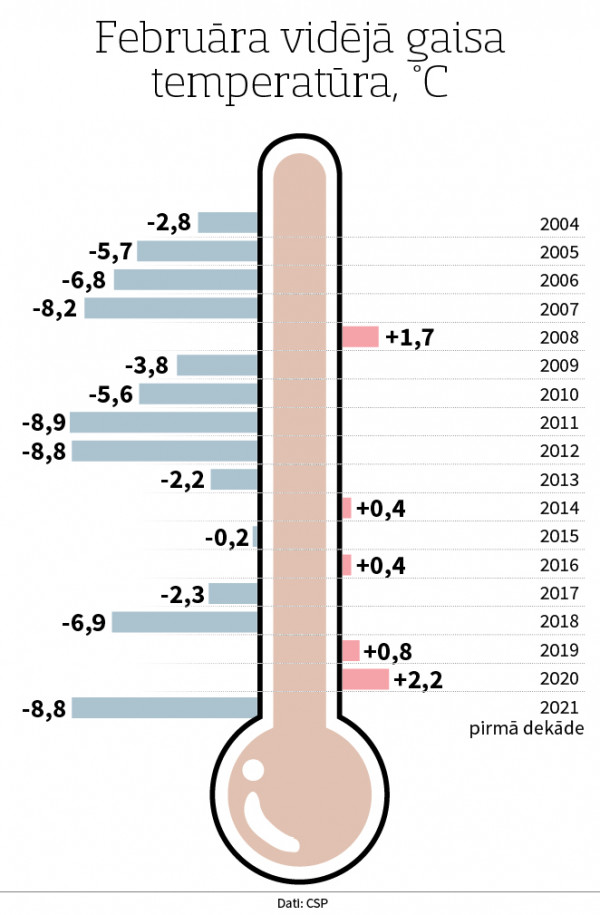Even reflections on climate change are forbidden by Facebook's censorship

February this year has been one of the coldest of the last twenty years. The data compiled by the Latvian Environment, Geology and Meteorology Centre show that in the first ten days of February the average air temperature in Latvia was -8.8 degrees Celsius, i.e. five degrees lower than the climate normal (in Bauska at the beginning of February the average air temperature was even 7.8 degrees lower than the climate normal).
In the first ten days of February, the average lowest air temperature in Latvia was observed on February 6 in Staļģene, when the thermometer bar reached -28.5 degrees. However, on 17 January, an even lower temperature of -31 degrees was observed in Staļģene, but these observations refer to January.

There were three very cold winters in this century in 2007, 2011 and 2012, when the average temperature in February dropped below minus eight degrees, while the average temperature in February 2019 and 2020 was above zero. As I pointed out in the article "Do January's cold records cancel global warming?" (in Latvian), neither the heat records of 2019 and 2020, nor the January 17 cold records, and not even this very cold February cancels anything or changes climate change. Last year's heat records are not evidence of global warming, and this year's abnormally cold February is not evidence of global cooling. The air temperature on the Earth's surface is constantly changing within a wide range.
Any body constantly emits heat radiation into the environment (which is proportional to the fourth power of absolute temperature (in Kelvin)). Without receiving heat radiation from the Sun at night (or by heat transfer from convection), the Earth's surface will cool, because the heat radiation (if not blocked by cloud cover or water vapor) will be radiated into the vast space. It's physics.

However, it turns out that the reflections on the laws of physics and Latvian meteorological observations are considered dangerous content because Facebook's censorship banned promoting my reflections on physics and meteorology, which were translated into English, outside Latvia on the Facebook network.
It seems that reflections on physics and climate change are equated with political extremism, calls for violence, intolerance and calls for discrimination against minorities.
Unfortunately, censorship on Facebook and other social platforms seems to be on the rise and it sets certain ideological boundaries that are not allowed to be crossed so as not to harm the interests of the global warming business.